Skincare Myths Debunked: Uncovering What Really Works and What Doesn’t
The skincare world can be confusing due to the many tips and advice available online and from friends. It’s crucial to know the common myths about skincare that can hinder proper skin care. Don’t worry. You’re not the only one who feels overwhelmed.
These skincare myths aren’t merely misleading; they can damage skincare routines that do more harm than good. Have you been avoiding chocolate for fear of breakouts? Maybe you’ve been layering on extra heavy moisturizers believing it will prevent wrinkles.
In the United States, these misconceptions are common. And these can steer you away from genuinely effective skincare practices. This article will give you accurate information on how to care for your skin.
We’ll clear up common myths and give honest facts to help you make good choices about your skin’s health and looks. Let’s learn together and find out the truth about skincare myths.
Common Skincare Myths Uncovered
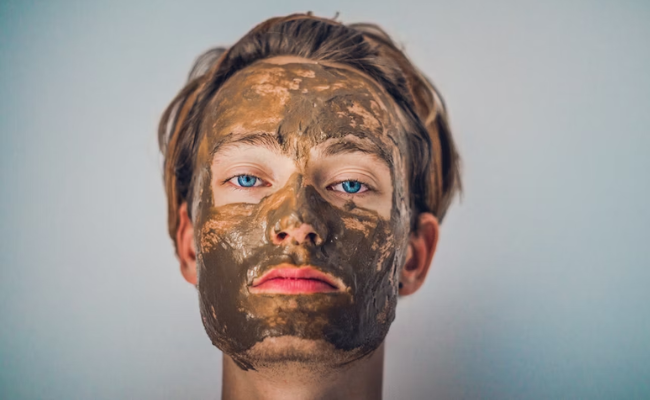
Photo Credit: Unsplash.com
Unverified information and myths about skin care can cloud your judgment and hinder your progress toward healthy skin. In this section, we delve into some of the most prevalent skincare myths and debunk them with scientific evidence.
Knowing facts from fiction can help you make informed choices and develop a skincare routine that works for you. Let’s drop the common myths and hear the skincare facts.
Myth 1: Pores Open and Close
Contrary to popular belief, pores do not have muscles that allow them to open and close. This misconception stems from the temporary changes in pore appearance caused by temperature or specific treatments.
Research has shown that pores may appear more prominent when exposed to heat or steam but do not expand or contract permanently. However, genetics primarily determines the size of your pores and can be influenced by factors like oil production and collagen levels.
So, while you can’t open or close your pores, there are ways to minimize pore appearance through proper skincare techniques. For instance, washing your face will remove excess oil and clogged pores if done regularly.

Photo Credit: Pexels.com
Myth 2: You Don’t Need Sunscreen Indoors
Another known skincare hoax. Sunscreen is for everyone, the American Academy of Dermatology (AAD) stated. Many assume they don’t need sunscreen if they spend most of their time indoors. However, this is a dangerous misconception.
Too much sun exposure harms the skin. Additionally, remember that the sun’s UVB rays can still damage your skin even when you are indoors. This can result in premature aging and an increased risk of skin cancer. To stay safe, use sunscreen with an SPF of 30 or more daily, even if you’re mostly inside.

Photo Credit: Pexels.com
Myth 3: Higher Price Means Better Product
Price does not always reflect the quality or effectiveness of skincare products. While some high-end products may offer luxurious packaging or exotic ingredients, focus more on the active ingredients and formulation instead.
The strength, stability, and how well the skincare product works with your skin type are essential factors to consider. Ensure you know what’s in your skincare products and how they can help your skin. This information enables you to make smart choices when shopping.
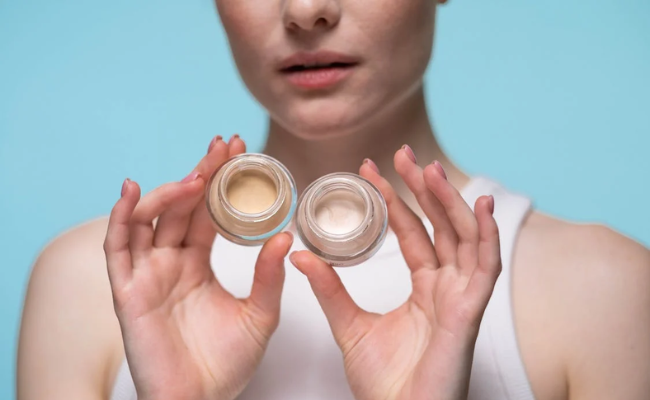
Photo Credit: Pexels.com
You may also like: How to Minimize Pores
Myth 4: You Don’t Need Moisturizer If You Have Oily Skin
One of the most common misconceptions is that individuals with oily skin don’t need to moisturize. In reality, all skin types require hydration, including oily skin. Your skin needs vitamins too. Moisturizers help replenish and balance the skin’s moisture levels, regardless of skin type or tone.
The AAD advises everyone to moisturize the skin to stay hydrated. Opting for lightweight, oil-free moisturizers with hyaluronic acid formulated for oily skin can provide hydration without aggravating oiliness.

Photo Credit: Pexels.com
Myth 5: Natural Ingredients Are Always Better
Natural ingredients seem tempting, but not all are good for your skin. Similarly, not all synthetic components are harmful. It’s essential to be aware of these facts. Undoubtedly, natural ingredients can offer certain benefits, but so can well-formulated synthetic ingredients.
On the other hand, the FDA does not regulate organic products. Make sure to look at what’s in a product, how much there is, and how it’s all assembled.
Don’t always assume that stuff labeled as “natural” is automatically good for you or that “synthetic” means it’s terrible. It can be more complicated! You must constantly assess the skincare product’s safety, effectiveness, and adaptability with your skin.
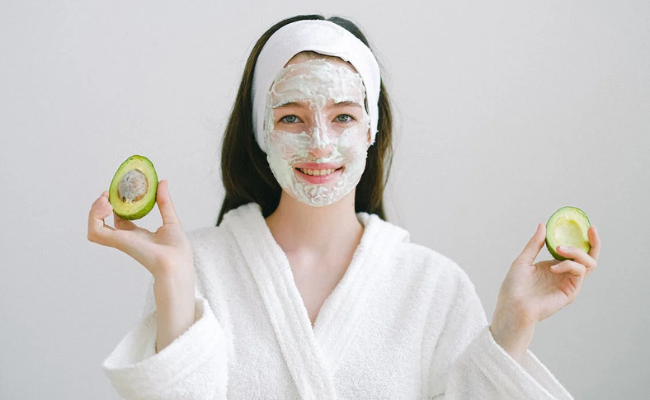
Photo Credit: Pexels.com
Fact-Checking Your Skincare Information
In the age of information overload, being discerning with skincare advice is critical. In this section, we explore the importance of fact-checking and verifying the credibility of skincare information.
Identifying Reliable Sources
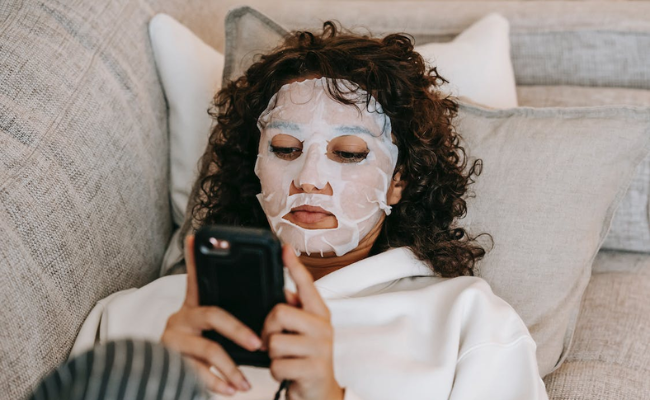
Photo Credit: Pexels.com
Information from reliable skincare sources is crucial for you to have accurate and trustworthy guidance. To ensure you make informed decisions about your skincare routine, consider the following factors when identifying reliable sources.
Look for information from reputable sources such as dermatologists, estheticians, or skincare professionals with the necessary experience and expertise. Their knowledge and experience can offer valuable insights and guidance.
Lastly, seek information from reputable websites, educational institutions, government health agencies, and respected skincare publications. These platforms have stringent standards for the information they publish and are dedicated to providing reliable and trustworthy content.
The Role of Personal Experimentation

Photo Credit: Pexels.com
While reliable sources provide valuable information, personal skincare experimentation is crucial in finding the best skincare routine. Everyone’s skin is unique, so conducting patch tests before introducing new products is essential.
Patch tests involve applying a small amount of product to a small skin area to check for any potential adverse reactions. Most dermatologists recommend using the product twice daily for 7–10 days. This helps you identify if a product is suitable for your skin or if it may cause irritation or allergies.
Personal experimentation helps you understand your skin better and make informed choices. As such, you can tailor your skincare routine based on your skin’s specific needs and preferences.
Remember, skin care is not a one-size-fits-all approach. Trying and adjusting different things can help you determine what works best for your skin and gives you the desired results.
What Really Works in Skincare
Beyond debunking common myths, it’s crucial to understand what truly works regarding skincare. Let’s explore two essential factors for achieving optimal skincare results.
You may also like: How Baby Foreskin Lotion Can Help with Common Infant Skin Conditions
Importance of Consistency and Patience
Consistency is paramount when it comes to skincare. Creating a beginner routine might be challenging. Your skin can adjust and get better results with a consistent routine and the same products. Skincare is a long-term commitment; expecting instant results can lead to disappointment.
Instead, practice patience and give your skincare routine time to show effectiveness. Over time, consistent care and patience can yield significant improvements in the health and appearance of your skin.
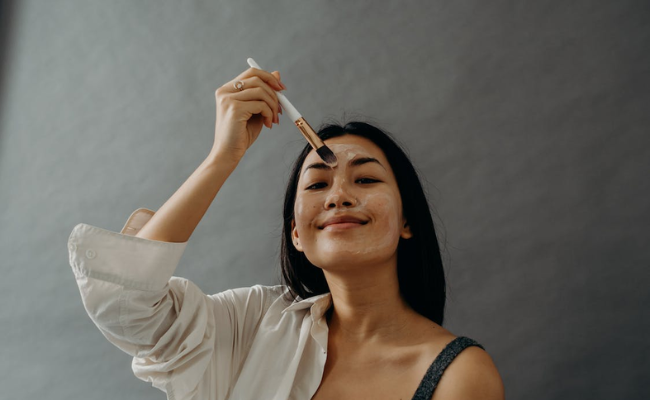
Photo Credit: Pexels.com
Understanding Your Skin Type
Understanding your skin type is crucial for choosing the right skincare products and treatments. Dry, oily, combination, and sensitive skin have unique characteristics and require specific approaches.
A dermatologist or licensed professional skin analysis can help determine your skin type and identify any specific concerns or conditions. Now that you know this, you can pick the right products and create a skincare routine that suits your skin. Doing this will help you get the best results from your efforts.

Photo Credit: Unsplash.com
Summary
Myths and false facts can create stumbling blocks to radiant, healthy skin within the skincare world. Debunking these common skincare myths and relying on trusted sources is your first step to a well-informed skincare routine.
Remember that pores don’t open or close, so you should always wear sunscreen, even inside, for sun protection. A product’s price sometimes means something other than good, so be careful. Everyone needs moisturizer for their skin. The value of skincare ingredients extends beyond natural or synthetic labels.
Embracing these truths about skincare myths and consistently applying this knowledge is the secret to optimizing your skincare routine. Balancing this with patience and a deep understanding of your skin type can produce fantastic results. And remember, know facts from fiction to help you on a skincare journey that benefits your skin.
FAQs
Can I use natural home remedies for skincare instead of commercial products?
Home remedies, while beneficial, require careful use, especially for those with sensitive skin due to potential irritants or allergens. Talking to a dermatologist before using honey, aloe vera, or tea tree oil in your skincare routine is a good idea. They will ensure that you’re using these remedies safely and effectively.
How often should I change my skincare routine?
Consistent skin care routines are essential, allowing ample time for product effectiveness. However, be ready to adjust if your skin’s needs shift or adverse reactions occur. Following a new routine for six to eight weeks is best before deciding if it works for you. It will give your skin enough time to get used to it and see if it helps.
If persistent concerns such as excessive dryness, redness, or breakouts emerge, seek a professional’s advice. They can pinpoint underlying problems and suggest suitable changes. While consistency matters, so do conformity and attentiveness to your skin’s needs, paving the way for the best skincare outcomes.

